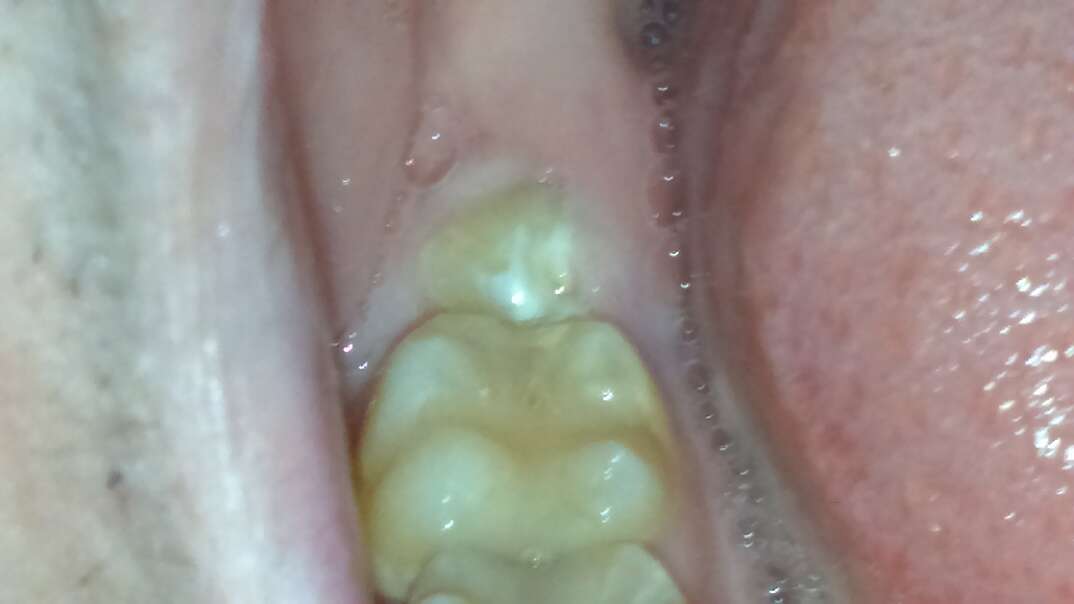- AppliancesElectriciansHVACLandscapingLocksmithPest ControlPlumbingRenovationRoofingT V RepairAll Home Improvement
- Car AccidentClass ActionCorporate LawCriminal DefenseDivorce LawEmployment LawFamily LawFinancial LawLegal AidMedical Injury LawyersMedical MalpracticeReal Estate LawWater Fire RestorationAll Legal
- InvestmentRetirementAll Finance
- Animal InsuranceAutoGeneral InsuranceHealth PolicyHome RentersAll Insurance
- DentalHealth SpecialistsAll Medical
- Animal CareVeterinaryAll Pets
- Auto GlassTowingAll Automotive
Smart Money: Here's How Much It Costs to Have Your Wisdom Teeth Removed

Instead of making you wiser, wisdom teeth can cause a spectrum of dental health problems. From impactions to overcrowding and bad breath, issues with your wisdom teeth can cause significant pain and inconvenience.
Wisdom teeth removals are common, and GoodRx estimates that American dentists remove a whopping 10 million wisdom teeth every year. However, many people worry about the potential costs of having a wisdom tooth extraction, sometimes leading to years of discomfort.
If your dentist recommends removing your wisdom teeth, knowing what out-of-pocket costs to expect can help you plan your budget.
According to GoodRx, wisdom teeth removal typically costs between $200 and $1,100 per tooth. How much you'll pay in total mainly depends on how many wisdom teeth you need your dentist to remove. Wisdom teeth extractions for all four wisdom teeth usually cost between about $2,500 and $4,000, according to Byte.
How Much Does Wisdom Teeth Removal Cost With Insurance?
Many insurance companies cover the cost of wisdom teeth surgery. However, how much your insurer covers depends on the type of extraction and your policy.
For example, dental insurance policies often cover 80% of the cost of basic procedures and 50% of major surgeries. Therefore, your insurer may pay 80% of the cost of wisdom teeth removal for erupted teeth because it's a relatively straightforward procedure. However, your policy may classify removing impacted wisdom teeth as a major procedure and cover just 50% of the costs.
Another factor to consider is your annual coverage limit. Removing all four wisdom teeth often exceeds dental insurance annual limits, increasing out-of-pocket costs.
Original Medicare doesn't typically cover dental procedures, such as wisdom teeth extraction, although you may be eligible if you have a Medicare Advantage plan with dental benefits. Most state Medicaid programs cover wisdom teeth extractions for children, and some cover eligible adults.
According to data from Byte, most people pay around $641 per tooth out of pocket for wisdom tooth surgery with insurance. The average cost of removing all four wisdom teeth with insurance coverage is roughly $2,564 on average.
You'll pay the total cost of your wisdom tooth removal procedure if you don't have insurance coverage. Most people spend around $720 per tooth without insurance, or around $4,000 for all four teeth.
What Factors Affect the Cost of Having Wisdom Teeth Removed?
The condition of your wisdom teeth significantly impacts the overall cost of your procedure. Removing erupted wisdom teeth is usually a quick and uncomplicated process, so you'll pay less per tooth.
Meanwhile, removing impacted wisdom teeth requires more time and resources and is more expensive. Performing tooth extraction surgery may also be more challenging (and costly) in older adults because their increased bone density makes impacted wisdom teeth harder to remove.
Dentists can usually remove erupted wisdom teeth using local anesthesia. Procedure quotes typically include the cost of numbing medications, so you won't pay extra for pain relief. However, you may pay more if you prefer or require sedation through an IV line or mask, or if your dentist recommends using nitrous oxide.
Sometimes, dentists place patients under general anesthetic to remove impacted wisdom teeth. General anesthesia is significantly more expensive than other anesthesia options.
Finally, where you live can affect how much your dentist charges for procedures such as wisdom teeth surgery. Standard rates for dental procedures are usually higher in cities and suburban areas with high living costs. Therefore, you could pay more for your surgery if you live in an expensive city compared to patients in more affordable towns and rural areas.
Elocal Editorial Content is for educational and entertainment purposes only. The information provided on this site is not medical advice. Editorial Content is not intended to be used for diagnosis or treatment. We are not physicians or a substitute for advice from a physician. The opinions, beliefs and viewpoints expressed by the eLocal Editorial Team and other third-party content providers do not necessarily reflect the opinions, beliefs and viewpoints of eLocal or its affiliate companies. Use of the Blog is subject to the
Website Terms and Conditions.The eLocal Editorial Team operates independently of eLocal USA's marketing and sales decisions.



